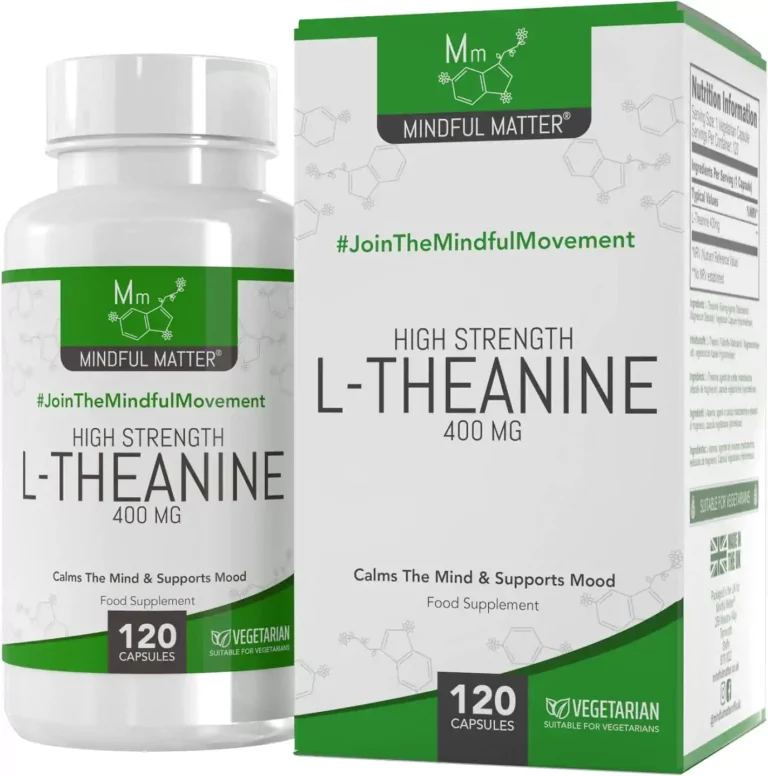
Top 5 Herbs in Ayurveda for Treatment of OCD
Obsessive-Compulsive Disorder It’s like you have two brains – a rational brain and an irrational brain. And they’re constantly fighting.
Emilie Ford
Obsessive Compulsive Disorder (OCD) is a mental disorder characterized by intrusive, unwanted thoughts and repetitive behaviors.
Read our article here: What is Obsessive Compulsive Disorder (OCD)
Do you suffer from occasional obsessive thoughts, or do specific thoughts become overwhelming and trigger a response in your body? If so, you might be suffering from Obsessive Compulsive Disorder (OCD). Although there is no single cure for OCD, there are various treatments that can help manage the symptoms. One such treatment is ayurveda, a holistic approach to health that is based on the theory of vata-pitta doshas. In this article, we explore whether ayurveda can help manage OCD symptoms.
By reading through this article, you’ll learn about ayurveda’s perspective on OCD treatment and ways to reduce it using Ayurvedic medicine. In the last section of this blog, we’ve included a list of the top 5 Herbs in Ayurveda for treatment of OCD that you can try at home!
Signs and symptoms of Obsessive Compulsive Disorder
If you’re someone who suffers from OCD, know that there are many signs and symptoms that you may be experiencing.
Symptoms of obsessive-compulsive disorder include checking, washing, and ordering rituals; hoarding; having secret thoughts or fears; avoidance behavior; and symmetry concerns, which means making sure volume knobs are on even numbers of that things on the right and left balance.
These symptoms cause significant distress and can affect your physical health.
Herbs, such as ginger, lavender, and ashwagandha, are also used to relieve symptoms of OCD.
What Is Ayurveda & Ayurvedic Treatment for OCD?
OCD is an anxiety disorder that affects millions of people around the world. It is a challenging condition that Ayurvedic practitioners claim can be effectively treated with ayurveda, a traditional Indian medicine.
Ayurveda is a holistic system of medicine that incorporates the principles of nature, which can help patients restore balance within themselves. There is no one-size-fits-all approach with ayurveda, so you may need to experiment to find the right therapy for you!
Ayurveda is based on the premise that health and well-being are maintained through the balance of the four elements in the body: earth, water, fire, and air.
Together, these therapies can help relieve symptoms of OCD and improve overall mental health. If you are looking for a treatment that is both effective and natural, ayurveda may be the right option for you!
The Three Doshas
Ayurveda has a long history of treating OCD. The Ayurvedic approach includes using herbal remedies to balance the three doshas:
Vata, pitta, and kapha are patterns made up of different combinations and permutations of these five elements.
- Vata is the subtle energy of movement in the body.
- Pitta is the energy of digestion and metabolism, and
- Kapha is the energy that gives the body its shape.
Health is when the human body is kept in balance by three doshas: If the delicate balance between these three doshas is upset, a disease may show up.
The main goal of the Ayurvedic method of treatment is to get the doshas back to their original state of balance.
Ayurvedic treatments not only help to relieve symptoms, but they also restore balance in the body.
If you’re looking for an alternative to traditional medication treatment options, Ayurvedic therapies may be a good option for you. With a holistic perspective that considers all aspects of the person, ayurveda may be a good fit for you and your OCD symptoms.
The Cause of OCD According to Ayurveda
In Ayurveda, OCD is known as Atatva Abhinivesha.
Atatvabhinivesha comprises two words:
- Atatva means false, having no existence
- Abhinivesha means interpretation
This describes how you know that if you do not do something a certain number of times nothing bad will happen, but you feel that if you do not do something a certain number of times, something terrible is going to occur.
OCD is when you obey your feelings, even when you want to go along with your thoughts.
Your mind fights your feelings. You know it’s false, but you feel very strongly that it’s true.
Ayurveda says Atatva Abhinivesha is mostly caused by an imbalance in vata dosha.
Vata dosha gets worse when you eat or drink things that are dirty, ignore your natural urges, eat too much cold, warm, sticky, or dry food, no matter what combinations you try or when you’re anxious.
People with exhausted mental ability have weakened vata dosha, which totally undermines the mana (the faculty of thinking) and buddhi (discriminating mind).
Because of this, the person’s mind gets weaker, and they lose the ability to tell the difference between good and bad, healthy and unhealthy, and truth and myth. When something like this goes on for a long time, it is called obsessive-compulsive disorder.
These technical Sanskrit terms are old and are complex and rooted in Indian culture. You don’t really have to understand the theory in order to benefit from the treatment.
It’s like going to a Western surgeon. You don’t have to know everything she knows, you just need to follow treatment.
Ayurvedic Remedies for OCD
Some of the most commonly used ayurvedic remedies for OCD include yoga, meditation, pranayama, herbs, and supplements. Yoga helps to calm the mind and meditation helps to focus and relax the mind.
Herbs, such as ginger, lavender, and ashwagandha, are also used to relieve symptoms of OCD. Supplements such as omega-3 fatty acids, magnesium, and probiotics can also be helpful in treating OCD.
Ashwagandha for OCD, Anxiety, & Stress
Ashwagandha is a powerful herb that has been used in ayurveda for centuries to treat these conditions.
People have called Ashwagandha the king of Ayurvedic herbs. It is best known for easing stress and anxiety. It may also improve a few specific aspects of physical ability, elevate testosterone levels, reduce inflammation and make it easier for women to get pregnant.
Ashwagandha, or Withania somnifera, is a herb that is used in Ayurveda, the traditional medicine of India.
It is said that its root gives you the strength and virility of a horse because it smells like a horse. In Sanskrit, ashva means “horse” and gandha means “smell.” So the herb’s name means ‘horse smell’, but don’t let that put you off!
Different parts of the plant are used, but an extract of the roots is the most common way to take it as a supplement.
Ashwagandha is called an adaptogen, so it is thought to make the body more adaptive to stress.
It’s advised to take ashwagandha as a daily supplement or consume it in food form. Ashwagandha can be helpful in reducing the symptoms of OCD, so you can start incorporating it into your regimen today!
If you’re not familiar with its effects, it would be sensible to speak with an Ayurvedic doctor before using this remedy.
What is Panchakarma and How May It Help OCD?
Many other ayurvedic therapies are thought to be very effective for an OCD patient, which is good news.
Panchakarma is a retreat where you undergo certain treatments and eat certain foods and take certain supplements in order to bring your doshas into balance.
Panchakarma gets rid of toxins that have built up in the mind and body. It is basically a detox programme.
Pancha means “five” in Sanskrit, and karma means “action.”
Together, they refer to five different Ayurvedic ways to clean and refresh the body.
When panchakarm was first developed thousands of years ago, people still built up harmful and unbalanced toxins in their body. Today, when bad diet, stress, and dangers in the environment are common, panchakarma can help a lot.
A panchakarma program lasts for several days, which gives you plenty of time to rest and think about what you’ve done. Each step in the programme has a purpose and restores your body’s natural ability to heal.
Your body knows how to clean itself well and is equipped to get rid of waste in several ways, such as:
- Sweat glands
- Blood vessels
- Urinary system
- Intestines
A panchakarma regime helps your body to heal itself.
Top 5 Herbs in Ayurveda for Treatment of OCD
Ashwagandha
As mentioned above: the number 1 Ayurvedic herb for OCD.
Buy here
Brahmi or Bacopa
Brahmi is believed to increase serotonin, which is what a western selective serotonin reuptake inhibitors (SSRI) would do to increase serotonin level.
Buy here
Shankhpushpi or Morning Glory.
Shankhpushpi is a traditional remedy for sharpening the thinking process.
Buy here
Mandukparni or Gotu Kola
This herb’s leaf resembles the foot of a frog and is supposed to promote mental alertness.
Buy here
Tulsi or Holy Basil
Tulsi has also been shown to reduce metabolic stress by bringing blood glucose, blood pressure, and lipid levels back to normal. It can also reduce psychological stress by improving memory and cognitive function and by making people feel less anxious and depressed.
Buy here
You can buy these herbs very often as essential oils, dried leaves, or capsules as you prefer. You find that these herbs naturally contain vitamins and minerals such as magnesium (mg), iron (fe) and potassium (k).
Caution! Just because they are natural does not mean they are without adverse effects, though these are usually minor. Please check side-effects of the brand you buy, which should be clearly stated in the literature.
Conclusion
OCD is a distressing mental health condition that is hard to treat with Western Medicine. While we do not undermine Western Medicine and we ourselves have seen a medication like paroxetine reduce symptoms, if you have had no luck with standard prescription drugs or from cognitive behavioural therapy, or Exposure Response Prevention (ERP) or maybe even as an adjunct to these systems, why not try an Ayurvedic line of treatment?
Ayurveda has collected a lot of experience about treatments over the past 3,000 years on the Indian Subcontinent and now elsewhere. You’ve got nothing to lose by trying a different way to treat OCD.
As always, seek professional medical advice before you try anything yourself.
I hope you have enjoyed my article on Top 5 Herbs in Ayurveda for Treatment of OCD. Please read our other articles for insights into ways to help anxiety and depression.
Related Articles
What is Obsessive Compulsive Disorder (OCD)?
Disclaimer
Although I am a nurse and a prescriber of psychotropic medication by profession, I am not YOUR nurse. All content and information on this website is for informational and educational purposes only, does not constitute medical advice, and does not establish any kind of patient-client relationship by your use of this website.






